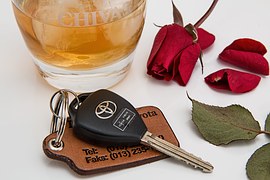What Defenses Are There In A DUI Or DWI Case?

What Defenses Are There in a Baltimore DUI Or DWI Case?
The answer to the question “What Defenses Are There In a Baltimore DUI Or DWI Case?” is not one that can necessarily be answered in a vacuum, or by wrote. Each case is unique. Not everyone facing a Baltimore DUI or drunk driving charge has a defense. As a long-time criminal defense lawyer handling DUI, driving while intoxicated, impaired, under the influence- and plain old drunk-driving cases- I would suggest is surely makes sense to find out if you do.
Technical Defenses in a Baltimore DUI Case?
When facing a drunk driving charge, it is essential to understand that various technical defenses might be available to challenge the allegations. A veteran attorney like Eric T. Kirk, a Baltimore criminal defense lawyer, can examine every detail of your case to determine the most effective strategy. For instance, one potential defense could involve questioning whether the breathalyzer test was administered within the legally required two-hour timeframe. Additionally, the accuracy and proper testing and maintenance of the equipment used for testing can be significant factors in your defense. If the equipment was malfunctioning or not properly calibrated, it could render the results unreliable- and inadmissible.
Defenses in a Baltimore Drunk Driving Charge- Field Sobriety
Field sobriety tests also provide fertile ground for defense challenges. These tests must be conducted according to strict protocols. If the officer failed to administer these tests correctly or failed to account for external factors—such as uneven pavement, weather conditions, or a driver’s medical issues—it might weaken the prosecution’s case.
Constitutional Challenges to a Baltimore Driving Under the Influence prosecution
In my view, however, one of the most effective strategies in drunk driving cases often involves challenging the legitimacy of the traffic stop itself. The inception of many DUI charges lies in the officer’s initial decision to pull the driver over. If that stop was not supported by reasonable suspicion of criminal activity, all evidence gathered after the stop—such as breathalyzer results or field sobriety tests—may be inadmissible in court. Reasonable suspicion is a critical legal standard that ensures law enforcement cannot detain drivers arbitrarily. For example, an officer must observe a specific, articulable fact suggesting criminal behavior, such as swerving, running a red light, or excessive speeding.
If it can be demonstrated that the officer lacked sufficient grounds for the stop, the defense could file a motion to suppress all evidence obtained afterward, which may result in the dismissal of the case due to the states inability to prove the case. Baltimore based DUI lawyer Eric T. Kirk understands the high stakes involved in drunk driving cases and is dedicated to providing personalized legal strategies for every client. His knowledge of Maryland DUI laws, combined with his commitment to justice, ensures a quality defense.
Attorney Eric T. Kirk will tell you.
There are technical and legal defenses available.
TRANSCRIPT
Someone charged with drunk driving might be able to raise some technical defenses to the charge. For example, that the officer didn’t administer the breathalyzer test within two hours of being pulled over, or that the equipment wasn’t functioning properly, or perhaps that the officer didn’t administer the field sobriety tests appropriately. In my experience, often, the most effective method to challenge such a charge is to challenge the officer’s original reason for pulling the motorist over onto the side of the road. If that officer did not have a reasonable suspicion that criminal activity was afoot, everything that comes after the stop is inadmissible at trial.



